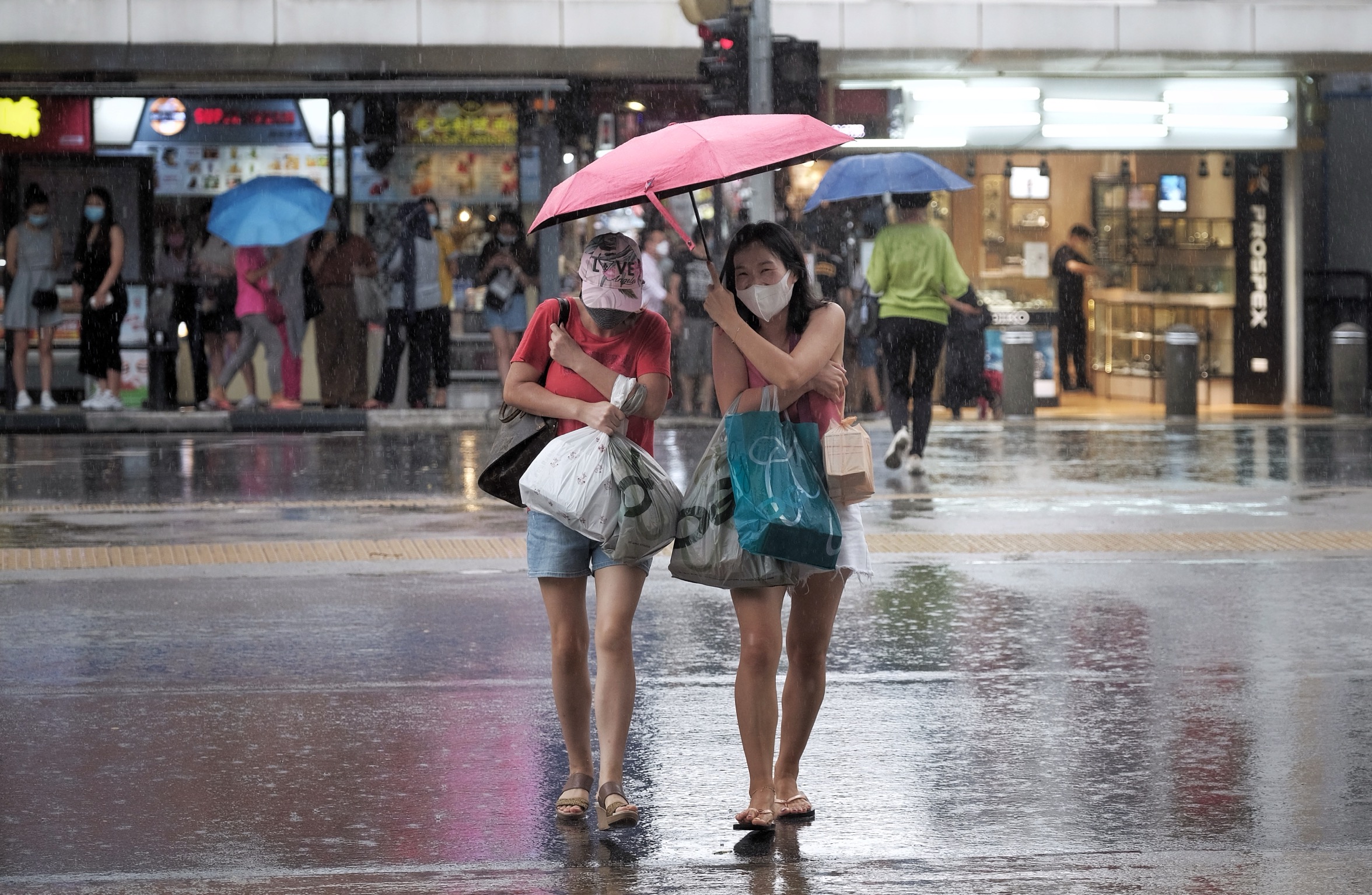2021 was Singapore's second-wettest year on record due to La Nina climate phenomenon
Sign up now: Get ST's newsletters delivered to your inbox

There was an islandwide average of 3,167.7 mm of rain in 2021.
ST PHOTO: GAVIN FOO
SINGAPORE - Last year was Singapore's second-wettest year on record after 2007, the weatherman said on Friday (Jan 28).
Heavy rains lashed the island last year, causing multiple flash floods in places such as Bukit Timah.
The La Nina climate phenomenon, which brings more rain over equatorial South-east Asia, had been in effect for 2021 and 2007.
The Meteorological Service Singapore (MSS) said in its report on the weather and climate in Singapore last year that there was an islandwide average of 3,167.7mm of rain.
In 2007, the islandwide average was 3,266.1mm - the highest since islandwide rainfall data collection started in 1980.
"La Nina conditions present during much of 2021 contributed to higher-than-normal rainfall in the year," MSS said.
During a La Nina event, trade winds that typically blow from the eastern tropical Pacific Ocean to the western part of the basin intensify. This causes warm water around the maritime continent - which includes Singapore and Indonesia - to be more tightly confined around it.

The concentrated moisture supply fuels the formation of rain clouds that bring more rain.
La Nina is the sister phenomenon to El Nino, which causes hotter and drier weather in equatorial South-east Asia.
While the impacts of La Nina or El Nino are felt most strongly around the tropical Pacific Ocean, both events can also temporarily influence global temperatures.

El Nino is often associated with a short-term increase in global temperatures, while La Nina has the opposite effect.
The earth is heating up due to the burning of fossil fuels and deforestation, which release plenty of planet-warming gases such as carbon dioxide into the atmosphere. The extra heat throws the earth's systems out of whack, resulting in impacts such as sea level rise, hotter temperatures, and more frequent extreme weather events.
The World Meteorological Organisation said in a report on last year's temperature data: "Despite the cooling influence of this naturally occurring climate phenomenon, temperatures in many parts of the world are expected to be above average because of the accumulated heat trapped in the atmosphere as a result of record high levels of greenhouse gases."
Last year was the sixth-warmest year on record, according to the National Aeronautics and Space Administration (Nasa).
Global average surface temperatures last year were 0.85 deg C above the period from 1951 to 1980 - the period that Nasa uses as a baseline.

The situation in Singapore mirrored this global trend.
The wetter conditions during last year's La Nina event helped to mitigate the influence of global warming on Singapore's annual mean temperature.
Last year's annual mean temperature was 27.9 deg C - making it the 10th-warmest year on record, the MSS report showed.
It was 0.1 deg C above the country's long-term average of 27.8 deg C.
"The last 10 years from 2012 to 2021 is the warmest decade on record," MSS said in the report.
The mean temperature from 2012 to 2021 was 0.02 deg C higher than the previous record of 27.95 deg C for the decade from 2010 to 2019.
Climate change could also exacerbate the strength of El Nino or La Nina events, meaning it becomes hotter and drier in Singapore during an El Nino event, and wetter during a La Nina event.

The National Oceanic and Atmospheric Administration (NOAA), for example, has warned that extreme El Nino and La Nina events may increase in frequency from about one every 20 years to one every 10 years by the end of the 21st century under aggressive greenhouse gas emission scenarios.
The NOAA also noted in a 2020 note on its website that the strongest El Nino and La Nina events may also become even stronger than they are today.
The MSS said that how such events could be affected by climate change is still an active area of research.
But its spokesman added: “Some El Nino or La Nina events can reinforce the effects of climate change on Singapore.”
For example, on top of the warming temperature from climate change, an El Nino event that coincides with the Republic’s traditionally warmer months could cause temperatures to rise even further.


